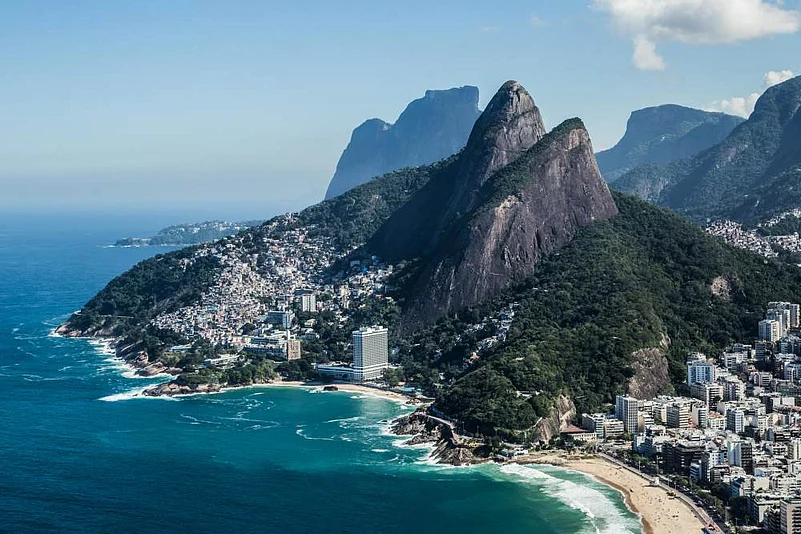Rio is a city of water. It’s flanked by the South Atlantic Ocean on one side. That water is mostly blue. There is a bay called Gaunabara in the heart of the city. That water is dark in colour. A big lake sits just across the bay. It’s almost green. There are white waterfalls in the Tijuca forest in the middle of the city. Tiny rivulets, which look muddy at times, run through the city. And there are canals too whose water can appear from green to dark brown depending on the season.
The city itself is named after a river. Rio means river in Portuguese; and Rio de Janeiro means January River. When the first Portuguese flotilla arrived in this part of the Brazil, they mistook the narrow mouth of the Guanabara Bay for a river and named it the January River, as it was first day of the year when the European ships arrived here.
There are few cities in the world who boast of blue sea waters, green lakes and white waterfalls and rivulets. And there colours change depending on the position of sun and your vantage point. As you move from Copacabana to Barra de Tijuca, where the Olympic Park is located, one can actually see the colour of sea turning from blue to green and then back to blue.
Advertisement
Cariocas, the city residents, are used to the change in colours and moods of Rio’s waters. They were rather amused when a big fuss was made by some athletes and newspapers when the water of the pool for synchronised swimming turned to green from blue. On day one, the water was blue. On the second day, it was green.
While Cariocas, who love water sports, couldn’t care less, the sports officials were seen scratching their heads, trying to explain the change in the colour. While an official claimed that the change happened because “athletes had perhaps requested for the colour change to lessen the effects of the sun's glare”, an American journalist proposed that the “water had not been treated properly overnight, causing a drop in chlorine levels and the formation of algae”.
Advertisement
Then the experts jumped in, with most agreeing that the change happened because of lack of chlorine. Even as Rio officials tried hard to clarify that there was no algae in water and it was safe, some Brazilians wondered on the social media if Shrek was responsible for the sudden greening of water.




















